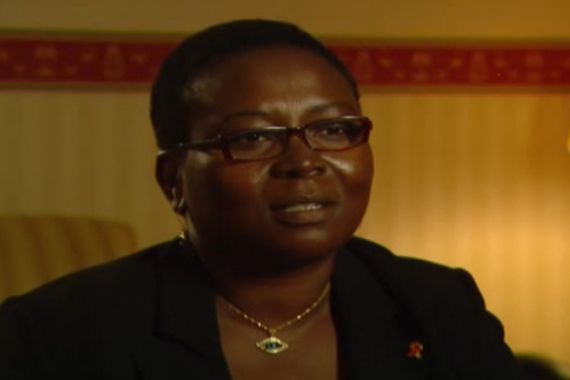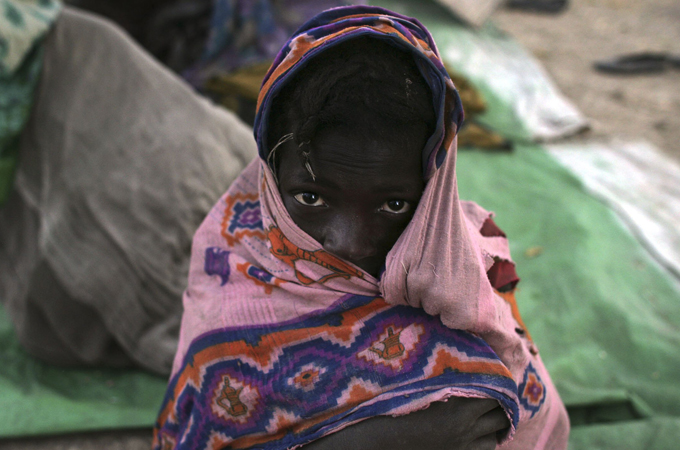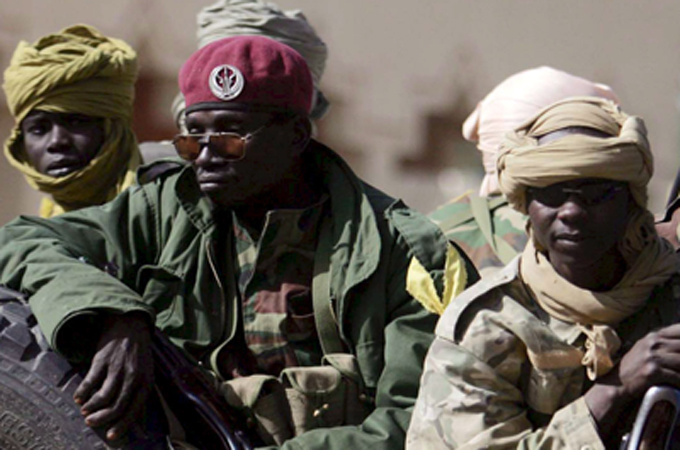
Delphine Djiraibe: Chad’s challenges
The human rights lawyer talks about democracy, oil money, and Chad’s struggle to gain independence.
 |
| Human rights activists criticise that Chad’s oil money is being mismanaged [GALLO/GETTY] |
Delphine Djiraibe is a human rights lawyer, the former director of the Chadian Association for the Defence and Promotion of Human Rights, and coordinator of the Peace and Reconciliation Committee.
She also runs a public interest law centre which provides pro-bono legal services to poor people, especially women. She talks to Al Jazeera’s Yvonne Ndege about the challenges facing Chad.
Al Jazeera: What compelled you, what happened in your life to provoke you to get involved in human rights issues?
Djiraibe: During the dictatorship period which was back in 1987 to 1990 I was studying outside Chad in Congo Brazzaville. When I came back in 1990 it coincided with the end of the dictatorship where Hissene Habre was kicked out by the current president and with [my] colleagues [I] witnessed the beginning of the political crisis.
It was just horrible. Bodies were lying around – people who had just died because they had no access to water and food. [My colleagues and I] decided to start [a] structure that would allow us to advocate for human rights in order to prevent such a thing happening again in Chad.
What caused this situation where you saw so many terrible things happen to people, so many rights abused?
Under the Hissene Habre regime it was like a bloody dictatorship – so no liberties, no freedom of opinion. People would just be arrested and put into jail because they laughed at Hissene Habre’s name for example. Many people have disappeared.
A report came out after he was ousted saying that more than 40,000 people have been killed [under his regime]. People were really afraid of each other because you did not know who was political police and who would denounce you and at night you would just disappear.
So it was really like a nightmare period. It was a regime where people have been killed, jailed for nothing, and it was really terror.
In 1990, the current president, Idriss Deby, took power in a coup. Have things changed since then? Have things gotten better?
We have freedoms only on paper because if a journalist criticises the government, he will be jailed. Some have been beaten. Some have been unlawfully arrested. And even in terms of law, we have a law that is really oppressive of the freedom of press.
So that is an element to say that we are far from the positive changes that we looking for. The certain thing is that we have started democratic process.
We had several national conferences which were a venue to establish democratic institutions, to have a democratic laws and a new constitution. But still all those nice laws are not applied and institutions are not working because the system of appointing officials is not transparent.
So if there is a position it will not be opened up for a candidate to run for it, but a president will hire a cousin of his cousin or a friend of his friend.
Even worse, in 2005, Deby, changed the constitution to remove any limitation on the terms of the presidency, so that he could run for his third term. And he will run for a fourth term. And nothing will prevent him from winning the election.
So this is the situation, there is no democracy, there is no transparency, corruption is rampant – and we have oil. So all the oil money is being misused. It has been used just by the close family members of the president and it has brought a lot of armed conflicts into Chad.
Part of Chad’s problem has been severe poverty, a lack of economic resources. The discovery of oil and the creation of a commercial oil export industry is changing the lives of the people of Chad. Is that not true?
Not true at all because at the very beginning that is [why] the World Bank acted to be involved in the oil project because for them it has to be a poverty elevation project. But now everybody is saying that oil money has not at all helped the poor people in Chad because when you go to the oil region you see that people [there] have become poorer than they were before and their means of production have disappeared.
Their lands have been taken for the oil project. They got compensation but without preparation. The cash that they have received has been expended like that and now they find themselves with nothing, and every time we go [out into] the fields to talk to them they will just be crying and saying that if we had known we would never allowed the project to happen.
But we have seen quite a number of projects in Ndjama, the capital city, that have been funded by profits from oil – accommodation for school teachers, there is an oil refinery under construction in conjunction with the Chinese, there are better roads, there are better bridges. How can you possibly say that the oil money is not meeting the needs of the ordinary people?
I know that is the complicated part of it because it is done on purpose. When you come to Ndjamena you will see that there are roads, there are buildings – but for whom have those roads and those buildings been built, and what is the plan and what is the priority?
Are the needs of the population taken into consideration?
I am saying that because when you compare what has been done and the situation where the majority of the population is. If you go outside of Ndjamena it is worse, but I am talking about in Ndjamena where you have roads, where you have buildings, and nice cars.
But just across the road you have people that are living with no means, not even a house, no sanitation, nothing to eat. So where is the priority? Is it to show to the outsiders that something is being done with the oil money or to be concerned about the well-being of human beings?
Has the discovery of oil been a blessing or a curse for Chad?
 |
| Decades of civil war and violence left Chad’s economy and infrastructure in tatters [EPA] |
It is a curse and everything is out there to show that it is a curse because I think we have been better off without oil. Now we are in the midst of armed conflict because of the oil money.
We are not moving on our democratic process because of the oil money and who controls the power controls the oil money and nobody would leave the power to leave the oil money.
So it has brought a lot of complications to our lives and we, as the average population, are not seeing the benefit of the oil money.
It is a source of upcoming social conflicts because you will have two classes of people – the ones that are wealthy and the ones that are really, really poor.
So after 50 years of independence should Chad be celebrating?
I have grown up within the independence environment but I do not think there is really a reason for Chad and for a majority of African countries to celebrate because it is a pity that after 50 years we are at this stage that we are in now.
In terms of celebration we should be thinking about [the reasons] why we are there and what needs to be done to get us out of there. I think it is really a pity for us, for the generations that have grown up since the 1960s till now to feel like we are a cursed generation because we have not seen something good about independence.
What can Chadians do to change their everyday situation given the huge challenges: poverty, disease, lack of infrastructure, lack of education, lack of basic necessities?
That is a big challenge and that is really the objective that the civil society has been pursuing to get people to ask for positive changes, and the way to have it is to get our government to organise a really global all-inclusive dialogue in order to redefine ways to manage the country and to manage the natural resources that we have.
I think that the real independence is still underway because there is too much interference and too many stakes out there that show clearly that [our] independence exists only on paper.
Sure countries are interlinked, but African countries still need to take their real independence and we need to have leaders that are aware of that situation and that are nationalist enough to fight for real independence because when you see what is happening in Chad, in Sudan there are always implications.
Everybody is saying when it comes to political decisions or to security matters even if we are claiming to be sovereign [we] always go back to our former colonisers to decide on behalf of us.
In 50 years from now where do you think Chad will be if it continues on this track?
It depends. If positive change is to come then the expectations will be higher that we will get somewhere positive. But if it is just in this same where everything is done to help President Deby stay in power, I think that the disruption will be [more] severe than what we have already seen.
And given the climate that you have described, the political climate, the economic and social conditions in Chad, do you worry about the younger generation?
Yes, a lot because a clear example is that we have fought a lot to put a clause in the law on the management of the oil revenue to put aside ten per cent of the oil money for future generations in order to help them manage social and environmental effects of the oil extraction, but even that President Deby and his government have taken out.
So the first money that had been put in an off-shore account was brought back to Chad and used. So there is nothing left for the future generation in terms of money. And even in terms of the country itself, if nothing is done now to improve the situation that would really be a problem for the future generation because they will inherit problems. They will inherit social disruption.